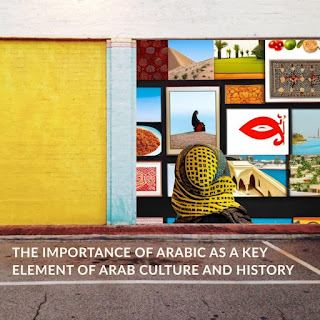The importance of Arabic as a key element of Arab culture and history
Arabic is a key element of Arab culture and history
Arabic is not just a language, it's a reflection of the history and soul of the Arab people
Arabic is not just a language, it's a reflection of the history and soul of the Arab people. This statement holds true for anyone who has ever delved into the rich culture and history of the Arab world. Arabic is not just a means of communication, it's an essential part of the Arab identity and way of life.
Arabic is the language of trade, connecting the Arab world with other regions
The Arab world has a long and complex history that is deeply intertwined with the Arabic language. It is a language that has evolved over time and has been shaped by the culture, customs, and traditions of the Arab people. It is a language that is rich in poetry, literature, and religious texts. The Arabic language has also been the language of trade and commerce for centuries, connecting the Arab world with other regions of the world.
Appreciate the beauty and richness of Arabic literature
Learning Arabic opens up a window into the rich history and culture of the Arab world. It provides a deeper understanding of the customs and traditions of the Arab people, their way of life, and their beliefs. It also allows one to appreciate the beauty and richness of Arabic literature, including the works of famous Arab poets.
Non-Arabic speakers start to learn Arabic
In recent years, there has been a growing interest in learning Arabic, particularly among non-Arabic speakers. Many people are realizing the importance of learning Arabic to better understand the Arab world and its people. This is particularly true for those who work in fields such as diplomacy, journalism, and international business.
There has been a growing interest in learning Arabic, particularly among non-Arabic speakers. This can be attributed to various factors, such as:
- The increasing political and economic influence of Arab countries in global affairs has led to a demand for Arabic speakers in the fields of diplomacy, journalism, and international business.
- The rich cultural heritage and history of the Arab world, which includes renowned poets, philosophers, and scientists, have piqued the curiosity of many individuals to explore the Arabic language and its notable contributions to human civilization.
- Arabic is the liturgical language of Islam and is used by Muslims all over the world for religious purposes. The desire to understand Islamic texts, such as the Quran, Hadith, and other religious writings, drives many non-Arabic speakers to learn the language in order to deepen their faith and gain a better understanding of Islamic teachings.
- The global popularity of Arabic music, cinema, and television has led to increased exposure to the language, encouraging people to learn it in order to appreciate the art and entertainment produced in Arabic-speaking countries.
- Educational opportunities available in prestigious universities and institutions across the Arab world, coupled with scholarships and exchange programs, have drawn many international students to learn Arabic in order to pursue their academic and professional goals.
- The rise of Arabic language learning apps and online resources has made the process of learning the language more accessible and convenient for individuals all around the world. With the help of interactive lessons, digital flashcards, and multimedia content, learners now have access to various tools and materials that cater to different learning styles and preferences.
- Career advancement opportunities in fields such as academia, finance, communication, technology, and more have further emphasized the importance of having Arabic language skills. Working proficiency in Arabic can significantly increase one's employability and open doors to higher income and job positions.
- Social and cultural connections established through learning Arabic enable individuals to communicate with Arabic speakers, develop friendships, and learn about the customs and traditions of the Arabic-speaking world. This helps promote dialogue and understanding between different cultures, thus building global tolerance and inclusivity.
With the right resources and methods, it is possible to learn Arabic
Learning Arabic is not an easy task. The Arabic language has a unique alphabet, grammar, and pronunciation that can be challenging for English speakers. However, with the right resources and determination, anyone can learn Arabic and gain a deeper understanding of the history and soul of the Arab people.
The example resources: Arabic.fi, Dr. V Abdurrahim blog, Learning with Abi and Ummi, IOU, this blog
Summary
In conclusion, Arabic is not just a language, it's a reflection of the history and soul of the Arab people. Learning Arabic is an essential step towards understanding the rich culture and history of the Arab world. By learning Arabic, we can bridge cultural divides, foster greater understanding, and build stronger relationships between the Arab world and the rest of the world.





No comments:
Post a Comment